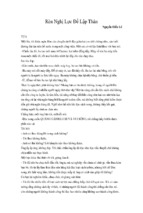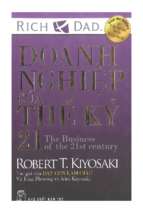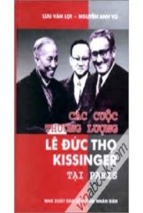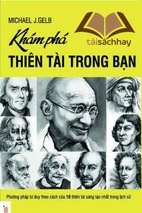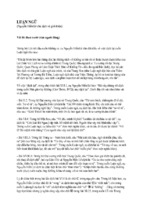A MERICA
P AGE 1
IN
P ROPHECY
E. G. W HITE
A MERICA
IN
P ROPHECY
E. G. W HITE
AMERICA
BY
IN
PROPHECY
E. G. WHITE
“I beheld another beast coming up out of the earth; and he
had two horns like a lamb, and he spake as a dragon. And
he doeth great wonders, so that he maketh fire come down
from heaven on the earth in the sight of men. and he causeth
all, both small and great, rich and poor, free and bond, to
receive a mark.”
Revelation 13:11, 13, 16, 17.
America in Prophecy was originally published
in 1888 under the title The Great Controversy.
All Rights Reserved
© 1888 by E.G. White. © 2001 by Inspiration Books East, Inc.
Cover Credits:
Lorenzo Ghiglieri. © 1973 by Theater of the Universe. Cover layout
and design by Charles Wheeling.
ISBN: 0-916547-04-3
IBE INC. • PO BOX 352 • Jemison • AL 35085 • USA
www.inbookseast.org
Printed in U.S.A.
P AGE 1
A MERICA
IN
P ROPHECY
E. G. W HITE
C ONTENTS
Chapter
AUTHOR’S PREFACE
1
JERUSALEM DESTROYED
2
FIRES OF PERSECUTION
3
REJECTION OF TRUTH
4
FAITH IN THE MOUNTAINS
5
LIGHTS BREAKS IN ENGLAND
6
TWO HEROES
7
NINETY-FIVE TIMES, NO!
8
CHAMPION OF TRUTH
9
A SWISS REFORMER
10
REFORM IN GERMANY
11
PROTEST OF THE PRINCES
12
THE FRENCH REFORMATION
13
HOPE FOR THE NETHERLANDS
14
THE BRITISH ISLES
15
TERROR IN FRANCE
16
FREEDOM’S SHORES
17
THE PROCLAMATION
18
AN AMERICAN REFORMER
19
LIGHT THROUGH DARKNESS
20
THE AWAKENING
21
A WARNING REJECTED
22
PROPHECIES FULFILLED
23
THE MYSTERY OF THE TEMPLE
24
A MEDIATOR
25
AMERICA IN PROPHECY
P AGE 2
4
14
39
50
64
84
104
131
160
190
206
220
237
268
278
301
329
341
362
392
406
429
448
469
485
496
A MERICA
IN
P ROPHECY
E. G. W HITE
C ONTENTS
Chapter
26
A WORK OF REFORM
27
TRUTH MUST PREVAIL
28
THE JUDGMENT
29
THE ORIGIN OF EVIL
30
CHAMPION OF HATE
31
EVIL SPIRITS
32
BEWARE THE SNARE!
33
FATHER OF LIES
34
DEAD MEN DON’T TELL LIES
35
LIBERTY OF CONSCIENCE THREATENED
36
IMPENDING CONFLICT
37
TRUTH OR CONSEQUENCES
38
THE FINAL WARNING
39
“A TIME OF TROUBLE”
40
SHAKE THE HEAVENS
41
DESOLATION OF THE EARTH
42
WAR NO MORE
P AGE 3
516
528
549
564
579
586
594
609
632
645
668
681
692
703
728
748
759
A MERICA
IN
P ROPHECY
E. G. W HITE
AUTHOR’S PREFACE
AUTHOR’S PREFACE
BEFORE THE ENTRANCE of sin, Adam enjoyed open
communion with his Maker; but since man separated
himself from God by transgression, the human race has
been cut off from this high privilege. By the plan of
redemption, however, a way has been opened whereby
the inhabitants of the earth may still have connection
with Heaven. God has communicated with men by His
Spirit, and divine light has been imparted to the world
by revelations to His chosen servants. “Holy men of
God spake as they were moved by the Holy Ghost.”
2 Peter 1:21.
During the first twenty-five hundred years of human
history, there was no written revelation. Those who had
been taught of God, communicated their knowledge to
others, and it was handed down from father to son, through
successive generations. The preparation of the written word
began in the time of Moses. Inspired revelations were then
embodied in an inspired book. This work continued
during the long period of sixteen hundred years; from
Moses, the historian of creation and the law, to John, the
recorder of the most sublime truths of the gospel.
The Bible points to God as its author; yet it was written
by human hands; and in the varied style of its different
books it presents the characteristics of the several writers.
The truths revealed are all “given by inspiration of God”
(2 Timothy 3:16); yet they are expressed in the words of
men. The Infinite One by His Holy Spirit has shed light
into the minds and hearts of His servants. He has given
dreams and visions, symbols and figures; and those to
P AGE 4
A MERICA
IN
P ROPHECY
E. G. W HITE
AUTHOR’S PREFACE
whom the truth was thus revealed, have themselves
embodied the thought in human language.
The Ten Commandments were spoken by God
Himself and were written by His own hand. They are of
divine, and not human composition. But the Bible, with
its God-given truths expressed in the language of men,
presents a union of the divine and the human. Such a
union existed in the nature of Christ, who was the Son of
God and the Son of man. Thus it is true of the Bible, as it
was of Christ, that “the Word was made flesh, and dwelt
among us.” John 1:14.
Written in different ages, by men who differed widely
in rank and occupation, and in mental and spiritual
endowments, the books of the Bible present a wide contrast
in style, as well as a diversity in the nature of the subjects
unfolded. Different forms of expression are employed by
different writers; often the same truth is more strikingly
presented by one than by another. And as several writers
present a subject under varied aspects and relations, there
may appear, to the superficial, careless, or prejudiced reader,
to be discrepancy or contradiction, where the thoughtful,
reverent student, with clearer insight, discerns the underlying
harmony.
As presented through different individuals, the truth
is brought out in its varied aspects. One writer is more
strongly impressed with one phase of a subject; he grasps
those points that harmonize with his experience or with
his power of perception and appreciation; another seizes
upon a different phase; and each, under the guidance of
the Holy Spirit, presents what is most forcibly impressed
P AGE 5
A MERICA
IN
P ROPHECY
E. G. W HITE
AUTHOR’S PREFACE
upon his own mind; a different aspect of the truth in
each, but a perfect harmony through all. And the truths
thus revealed unite to form a perfect whole, adapted to
meet the wants of men in all the circumstances and
experiences of life.
God has been pleased to communicate His truth to
the world by human agencies, and He Himself, by His
Holy Spirit, qualified men and enabled them to do this
work. He guided the mind in the selection of what to
speak and what to write. The treasure was entrusted to
earthen vessels, yet it is none the less, from Heaven. The
testimony is conveyed through the imperfect expression
of human language; yet it is the testimony of God; and
the obedient, believing child of God beholds in it the
glory of a divine power, full of grace and truth.
In His word, God has committed to men the
knowledge necessary for salvation. The Holy Scriptures
are to be accepted as an authoritative, infallible revelation
of His will. They are the standard of character, the
revealer of doctrines, and the test of experience. “Every
scripture inspired of God is also profitable for teaching,
for reproof, for correction, for instruction which is in
righteousness; that the man of God may be complete,
furnished completely unto every good work.” 2 Timothy
3:16, 17, R.V.
Yet the fact that God has revealed His will to men
through His word, has not rendered needless the continued
presence and guiding of the Holy Spirit. On the contrary,
the Spirit was promised by our Saviour, to open the word
to His servants, to illuminate and apply its teachings. And
since it was the Spirit of God that inspired the Bible, it is
P AGE 6
A MERICA
IN
P ROPHECY
E. G. W HITE
AUTHOR’S PREFACE
impossible that the teaching of the Spirit should ever be
contrary to that of the word.
The Spirit was not given—nor can it ever be
bestowed—to supersede the Bible; for the Scriptures
explicitly state that the word of God is the standard by
which all teaching and experience must be tested. Says the
apostle John, “Believe not every spirit, but try the spirits
whether they are of God; because many false prophets are
gone out into the world.” 1 John 4:1. And Isaiah declares,
“To the law and to the testimony; if they speak not
according to this word, it is because there is no light in
them.” Isaiah 8:20.
Great reproach has been cast upon the work of the
Holy Spirit, by the errors of a class that, claiming its
enlightenment, profess to have no further need of guidance
from the word of God. They are governed by impressions
which they regard as the voice of God in the soul. But the
spirit that controls them is not the Spirit of God. This
following of impressions, to the neglect of the Scriptures,
can lead only to confusion, to deception and ruin. It serves
only to further the designs of the evil one. Since the
ministry of the Holy Spirit is of vital importance to the
church of Christ, it is one of the devices of Satan, through
the errors of extremists and fanatics to cast contempt upon
the work of the Spirit, and cause the people of God to
neglect this source of strength which our Lord Himself
has provided.
In harmony with the word of God, His Spirit was to
continue its work throughout the entire period of the
gospel dispensation. During the ages while the Scriptures
of both the Old and the New Testament were being given,
P AGE 7
A MERICA
IN
P ROPHECY
E. G. W HITE
AUTHOR’S PREFACE
the Holy Spirit did not cease to communicate light to
individual minds, apart from the revelations to be
embodied in the Sacred Canon. The Bible itself relates
how, through the Holy Spirit, men received warning,
reproof, counsel, and instruction in matters in no way
relating to the giving of the Scriptures. And mention is
made of prophets in different ages, of whose utterances
nothing is recorded. In like manner, after the close of
the canon of Scripture, the Holy Spirit was still to
continue its work, to enlighten, warn, and comfort the
children of God.
Jesus promised His disciples, “The Comforter, which
is the Holy Ghost, whom the Father will send in My name,
He shall teach you all things, and bring all things to your
remembrance, whatsoever I have said unto you.” “When
He, the Spirit of truth, is come, He will, guide you into all
truth;… and He will show you things to come.” John
14:26; 16:13. Scripture plainly teaches that these promises,
so far from being limited to apostolic days, extend to the
church of Christ in all ages. The Saviour assures His
followers, “I am with you alway, even unto the end of the
world.” Matthew 28:20. And Paul declares that gifts and
manifestations of the Spirit were set in the church “for the
perfecting of the saints, for the work of the ministry, for
the edifying of the body of Christ; till we all come in the
unity of the faith, and of the knowledge of the Son of
God, unto a perfect man, unto the measure of the stature
of the fullness of Christ.” Ephesians 4:12, 13.
For the believers at Ephesus the apostle prayed, “That
me God of our Lord Jesus Christ, the Father of glory, may
give unto you the Spirit of wisdom and revelation in the
P AGE 8
A MERICA
IN
P ROPHECY
E. G. W HITE
AUTHOR’S PREFACE
knowledge of Him; the eyes of your understanding being
enlightened; that ye may know what is the hope of His
calling, and what… is the exceeding greatness of His power
to usward who believe.” Ephesians 1:17-19. The
ministry of the divine Spirit in enlightening the
understanding and opening to the mind the deep things
of God’s holy word, was the blessing which Paul thus
besought for the Ephesian church.
After the wonderful manifestation of the Holy Spirit
on the Day of Pentecost, Peter exhorted the people to
repentance and baptism in the name of Christ, for the
remission of their sins; and he said, “Ye shall receive the
gift of the Holy Ghost. For the promise is unto you, and
to your children, and to all that are afar off, even as many
as the Lord our God shall call.” Acts 2:38, 39.
In immediate connection with the scenes of the great
day of God, the Lord by the prophet Joel has promised a
special manifestation of His Spirit. Joel 2:28. This
prophecy received a partial fulfillment in the outpouring
of the Spirit on the Day of Pentecost; but it will reach its
full accomplishment in the manifestation of divine grace
which will attend the closing work of the gospel.
The great controversy between good and evil will
increase in intensity to the very close of time. In all ages
the wrath of Satan has been manifested against the church
of Christ; and God has bestowed His grace and Spirit upon
His people to strengthen them to stand against the power
of the evil one. When the apostles of Christ were to bear
His gospel to the world and to record it for all future ages,
they were especially endowed with the enlightenment of
the Spirit. But as the church approaches her final
P AGE 9
A MERICA
IN
P ROPHECY
E. G. W HITE
AUTHOR’S PREFACE
deliverance, Satan is to work with greater power. He comes
down “having great wrath, because he knoweth that he
hath but a short time.” Revelation 12:12. He will work
“with all power and signs and lying wonders.”
2 Thessalonians 2:9. For six thousand years that
mastermind that once was highest among the angels of
God, has been wholly bent to the work of deception and
ruin. And all the depths of satanic skill and subtlety
acquired, all the cruelty developed, during these struggles
of the ages, will be brought to bear against God’s people
in the final conflict. And in this time of peril the followers
of Christ are to bear to the world the warning of the Lord’s
second advent; and a people are to be prepared to stand
before Him at His coming, “without spot, and blameless.”
2 Peter 3:14. At this time the special endowment of divine
grace and power is not less needful to the church than in
apostolic days.
Through the illumination of the Holy Spirit, the scenes
of the long-continued conflict between good and evil have
been opened to the writer of these pages. From time to
time I have been permitted to behold the working, in
different ages, of the great controversy between Christ, the
Prince of life, and the Author of our salvation, and Satan,
the prince of evil, the author of sin, the first transgressor of
God’s holy law. Satan’s enmity against Christ has been
manifested against His followers. The same hatred of the
principles of God’s law, the same policy of deception, by
which error is made to appear as truth, by which human
laws are substituted for the law of God, and men are led to
worship the creature rather than the Creator, may be traced
in all the history of the past. Satan’s efforts to misrepresent
P AGE 10
A MERICA
IN
P ROPHECY
E. G. W HITE
AUTHOR’S PREFACE
the character of God, to cause men to cherish a false
conception of the Creator, and thus to regard Him with
fear and hate rather than with love, his endeavors to set
aside the divine law, leading the people to think themselves
free from its requirements, and his persecution of those who
dare to resist his deceptions, have been steadfastly pursued
in all ages. They may be traced in the history of patriarchs,
prophets, and apostles, of martyrs and reformers.
In the great final conflict, Satan will employ the same
policy, manifest the same spirit, and work for the same end,
as in all preceding ages. That which has been, will be, except
that the coming struggle will be marked with a terrible
intensity such as the world has never witnessed. Satan’s
deceptions will be more subtle, his assaults more determined.
If it were possible, he would lead astray the elect. Mark
13:22, R.V.
As the Spirit of God has opened to my mind the great
truths of His word, and the scenes of the past and the
future, I have been bidden to make known to others what
has thus been revealed—to trace the history of the of the
controversy in past ages, and especially to so present it as
to shed a light on the fast-approaching struggle of the
future. In pursuance of this purpose, I have endeavored
to select and group together events in the history of the
church in such a manner as to trace the unfolding of the
great testing truths that at different periods have been given
to the world, that have excited the wrath of Satan, and the
enmity of a world-loving church, and that have been
maintained by the witness of those who “loved not their
lives unto the death.”
P AGE 11
A MERICA
IN
P ROPHECY
E. G. W HITE
AUTHOR’S PREFACE
In these records we may see a foreshadowing of the
conflict before us. Regarding them in the light of God’s
word, and by the illumination of His Spirit, we may see
unveiled the devices of the wicked one, and the dangers
which they must shun who would be found “without fault”
before the Lord at His coming.
The great events which have marked the progress of
reform in past ages, are matters of history, well known
and universally acknowledged by the Protestant world; they
are facts which none can gainsay. This history I have
presented briefly, in accordance with the scope of the book,
and the brevity which must necessarily be observed, the
facts having been condensed into as little space as seemed
consistent with a proper understanding of their application.
In some cases where a historian has so grouped together
events as to afford, in brief, a comprehensive view of the
subject, or has summarized details in a convenient manner,
his words have been quoted; but except in a few instances
no specific credit has been given, since they are not quoted
for the purpose of citing that writer as authority, but
because his statement affords a ready and forcible
presentation of the subject. In narrating the experience
and views of those carrying forward the work of reform in
our own time, similar use has occasionally been made of
their published works.
It is not so much the object of this book to present
new truths concerning the struggles of former times, as to
bring out facts and principles which have a bearing upon
coming events. Yet viewed as a part of the controversy
between the forces of light and darkness, all these records
of the past are seen to have a new significance; and through
P AGE 12
A MERICA
IN
P ROPHECY
E. G. W HITE
AUTHOR’S PREFACE
them a light is cast upon the future, illumining the pathway
of those who, like the reformers of past ages, will be called,
even at the peril of all earthly good, to witness “for the
word of God, and for the testimony of Jesus Christ.”
To unfold the scenes of the great controversy between
truth and error; to reveal the wiles of Satan, and the means
by which he may be successfully resisted; to present a
satisfactory solution of the great problem of evil, shedding
such a light upon the origin and the final disposition of
sin as to fully make manifest the justice and benevolence
of God in all His dealings with His creatures; and to show
the holy, unchanging nature of His law, is the object of
this book. That through its influence souls may be
delivered from the power of darkness, and become
“partakers of the inheritance of the saints in light,” to the
praise of Him who loved us, and gave Himself for us, is
the earnest prayer of the writer.
E.G.W.
P AGE 13
A MERICA
IN
P ROPHECY
E. G. W HITE
CHAPTER 1: JERUSALEM DESTROYED
JERUSALEM DESTROYED
I
f thou hadst known, even thou, at least in this thy day, the
things which belong unto thy peace! but now they are hid
from thine eyes. For the days shall come upon thee, that
thine enemies shall cast a trench about thee, and compass
thee round, and keep thee in on every side, and shall lay thee
even with the ground, and thy children within thee; and they
shall not leave in thee one stone upon another; because thou
knewest not the time of thy visitation.” Luke 19:42-44.
From the crest of Olivet, Jesus looked upon Jerusalem.
Fair and peaceful was the scene spread out before Him. It
was the season of the Passover, and from all lands the children
of Jacob had gathered there to celebrate the great national
festival. In the midst of gardens and vineyards, and green
slopes studded with pilgrims’ tents, rose the terraced hills,
the stately palaces, and massive bulwarks of Israel’s capital.
The daughter of Zion seemed in her pride to say, “I sit a
queen, and shall see no sorrow;” as lovely then, and deeming
herself as secure in Heaven’s favor, as when, ages before, the
royal minstrel sang, “Beautiful for situation, the joy of the
whole earth, is Mount Zion,” “the city of the great King.”
Psalms 48:2. In full view were the magnificent buildings of
the temple. The rays of the setting sun lighted up the snowy
whiteness of its marble walls, and gleamed from golden gate
and tower and pinnacle. “The perfection of beauty” it stood,
the pride of the Jewish nation. What child of Israel could
gaze upon the scene without a thrill of joy and admiration!
But far other thoughts occupied the mind of Jesus. “When
He was come near, He beheld the city, and wept over it.”
Luke 19:41. Amid the universal rejoicing of the triumphal
P AGE 14
A MERICA
IN
P ROPHECY
E. G. W HITE
CHAPTER 1: JERUSALEM DESTROYED
entry, while palm branches waved, while glad hosannas awoke
the echoes of the hills, and thousands of voices declared Him
king, the world’s Redeemer was overwhelmed with a sudden
and mysterious sorrow. He, the Son of God, the Promised
One of Israel, whose power had conquered death, and called
its captives from the grave, was in tears, not of ordinary grief,
but of intense, irrepressible agony.
His tears were not for Himself, though He well knew
whither His feet were tending. Before Him lay Gethsemane,
the scene of His approaching agony. The sheep gate also was
in sight, through which for centuries the victims for sacrifice
had been led, and which was to open for Him when He
should be “brought as a lamb to the slaughter.” Isaiah 53:7.
Not far distant was Calvary, the place of crucifixion. Upon
the path which Christ was soon to tread must fall the horror
of great darkness as He should make His soul an offering for
sin. Yet it was not the contemplation of these scenes that
cast the shadow upon Him in this hour of gladness. No
foreboding of His own superhuman anguish clouded that
unselfish spirit. He wept for the doomed thousands of
Jerusalem—because of the blindness and impenitence of those
whom He came to bless and to save.
The history of more than a thousand years of God’s
special favor and guardian care, manifested to the chosen
people, was open to the eye of Jesus. There was Mount
Moriah, where the son of promise, an unresisting victim,
had been bound to the altar — emblem of the offering of the
Son of God. Genesis 22:9. There, the covenant of blessing,
the glorious Messianic promise, had been confirmed to the
father of the faithful. Genesis 22:16-18. There the flames of
the sacrifice ascending to heaven from the threshing-floor of
P AGE 15
A MERICA
IN
P ROPHECY
E. G. W HITE
CHAPTER 1: JERUSALEM DESTROYED
Ornan had turned aside the sword of the destroying angel
(1 Chronicles 21) — fitting symbol of the Saviour’s sacrifice
and mediation for guilty men. Jerusalem had been honored
of God above all the earth. The Lord had “chosen Zion,” He
had “desired it for His habitation.” Psalms 132:13. There,
for ages, holy prophets had uttered their messages of warning.
There, priests had waved their censers, and the cloud of
incense, with the prayers of the worshipers, had ascended
before God. There daily the blood of slain lambs had been
offered, pointing forward to the Lamb of God. There,
Jehovah had revealed His presence in the cloud of glory above
the mercy seat. There rested the base of that mystic ladder
connecting earth with Heaven (Genesis 28:12; John 1:51)
— that ladder upon which angels of God descended and
ascended, and which opened to the world the way into the
holiest of all. Had Israel as a nation preserved her allegiance
to Heaven, Jerusalem would have stood forever, the elect of
God. Jeremiah 17:21-25. But the history of that favored
people was a record of backsliding and rebellion. They had
resisted Heaven’s grace, abused their privileges, and slighted
their opportunities.
Although Israel had “mocked the messengers of God,
and despised His words, and misused His prophets”
(2 Chronicles 36:15, 16), He had still manifested Himself to
them, as “the Lord God, merciful and gracious, long-suffering,
and abundant in goodness and truth” (Exodus 34:6);
notwithstanding repeated rejections, His mercy had
continued its pleadings. With more than a father’s pitying
love for the son of his care, God had “sent to them by His
messengers, rising up betimes, and sending; because He had
compassion on His people, and on His dwelling place.”
P AGE 16
A MERICA
IN
P ROPHECY
E. G. W HITE
CHAPTER 1: JERUSALEM DESTROYED
2 Chronicles 36:15. When remonstrance, entreaty, and
rebuke had failed, He sent to them the best gift of Heaven;
nay, He poured out all Heaven in that one Gift.
The Son of God Himself was sent to plead with the
impenitent city. It was Christ that had brought Israel as a
goodly vine out of Egypt. His own hand had cast out the
heathen before it. Psalms 80:8. He had planted it “in a very
fruitful hill.” Isaiah 5:1-4. His guardian care had hedged it
about. His servants had been sent to nurture it. “What
could have been done more to My vineyard,” He exclaims,
“that I have not done in it?” Though when He “looked that
it should bring forth grapes, it brought forth wild grapes,”
(Isaiah 5:1-4) yet with a still yearning hope of fruitfulness
He came in person to His vineyard, if haply it might be saved
from destruction. He digged about His vine; He pruned
and cherished it. He was unwearied in His efforts to save
this vine of His own planting.
For three years the Lord of light and glory had gone in
and out among His people. “He went about doing good,”
“healing all that were oppressed of the devil” (Acts 10:38),
binding up the broken-hearted, setting at liberty them that
were bound, restoring sight to the blind, causing the lame to
walk and the deaf to hear, cleansing the lepers, raising the
dead, and preaching the gospel to the poor. Luke 4:18;
Matthew 11:5. To all classes alike was addressed the gracious
call, “Come unto Me, all ye that labor and are heavy laden,
and I will give you rest.” Matthew 11:28.
Though rewarded with evil for good, and hatred for His
love, (Psalms 109:5), He had steadfastly pursued His mission
of mercy. Never were those repelled that sought His grace.
A homeless wanderer, reproach and penury His daily lot, He
P AGE 17
A MERICA
IN
P ROPHECY
E. G. W HITE
CHAPTER 1: JERUSALEM DESTROYED
lived to minister to the needs and lighten the woes of men,
to plead with them to accept the gift of life. The waves of
mercy, beaten back by those stubborn hearts, returned in a
stronger tide of pitying, inexpressible love. But Israel had
turned from her best Friend and only Helper. The pleadings
of His love had been despised, His counsels spurned, His
warnings ridiculed.
The hour of hope and pardon was fast passing; the cup
of God’s long-deferred wrath was almost full. The cloud
that had been gathering through ages of apostasy and
rebellion, now black with woe was about to burst upon a
guilty people, and He who alone could save them from their
impending fate had been slighted, abused, rejected, and was
soon to be crucified. When Christ should hang upon the
cross of Calvary, Israel’s day as a nation favored and blessed
of God would be ended. The loss of even one soul is a
calamity, infinitely outweighing the gains and treasures of a
world; but as Christ looked upon Jerusalem, the doom of a
whole city, a whole nation, was before Him; that city, that
nation which had once been the chosen of God — His
peculiar treasure.
Prophets had wept over the apostasy of Israel, and the
terrible desolations by which their sins were visited. Jeremiah
wished that his eyes were a fountain of tears, that he might
weep day and night for the slain of the daughter of his people,
for the Lord’s flock that was carried away captive. Jeremiah
9:1; 13:17. What, then, was the grief of Him whose prophetic
glance took in, not years, but ages! He beheld the destroying
angel with sword uplifted against the city which had so long
been Jehovah’s dwelling place. From the ridge of Olivet, the
very spot afterward occupied by Titus and his army, He looked
P AGE 18
A MERICA
IN
P ROPHECY
E. G. W HITE
CHAPTER 1: JERUSALEM DESTROYED
across the valley upon the sacred courts and porticos, and
with tear-dimmed eyes He saw, in awful perspective, the walls
surrounded by alien hosts. He heard the tread of armies
marshaling for war. He heard the voice of mothers and
children crying for bread in the besieged city. He saw her
holy and beautiful house, her palaces and towers, given to
the flames, and where once they stood, only a heap of
smouldering ruins.
Looking down the ages, He saw the covenant people
scattered in every land, “like wrecks on a desert shore.” In
the temporal retribution about to fall upon her children, He
saw but the first draught from that cup of wrath which at the
final judgment she must drain to its dregs. Divine pity,
yearning love, found utterance in the mournful words:
“O Jerusalem, Jerusalem, thou that killest the prophets, and
stonest them which are sent unto thee, how often would I
have gathered thy children together, even as a hen gathereth
her chickens under her wings, and ye would not!” Matthew
23:37. Oh that thou, a nation favored above every other,
hadst known the time of thy visitation, and the things that
belong unto thy peace! I have stayed the angel of justice,
I have called thee to repentance, but in vain. It is not merely
servants, delegates, and prophets, whom thou hast refused
and rejected, but the Holy One of Israel, thy Redeemer. If
thou art destroyed, thou alone art responsible. “Ye will not
come to Me, that ye might have life.” John 5:40.
Christ saw in Jerusalem a symbol of the world hardened
in unbelief and rebellion, and hastening on to meet the
retributive judgments of God. The woes of a fallen race,
pressing upon His soul, forced from His lips that exceeding
bitter cry. He saw the record of sin traced in human misery,
P AGE 19
- Xem thêm -




